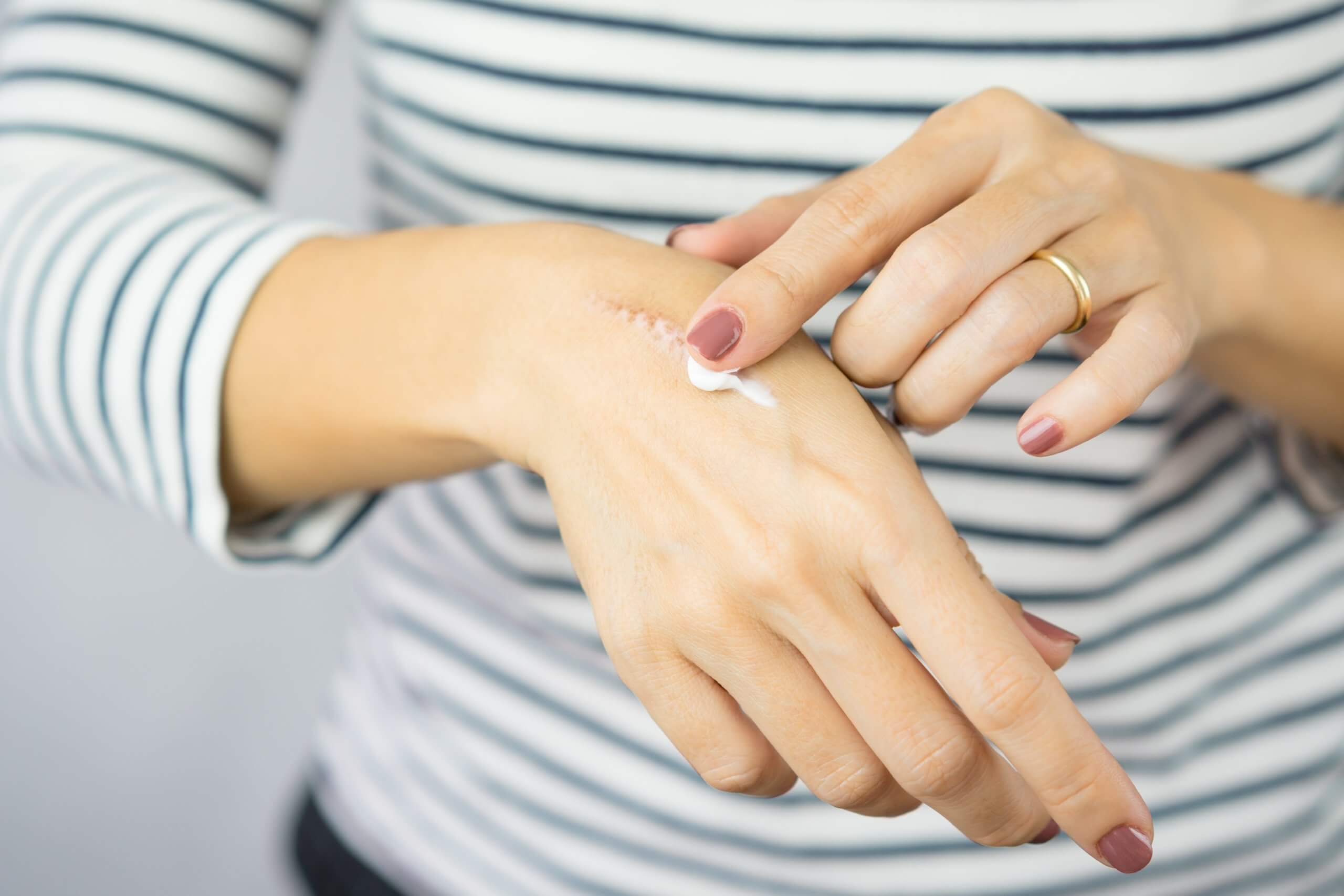It’s unfortunate, but all too often, it may be inevitable. As we age, we are more prone to trips and falls. There can be any number of underlying factors that contribute to this including clutter around the home, bad lighting, improper footwear, weakened muscles, and cognitive deficit issues, among others. For mature adults in particular, when they fall, some scrapes, skin tears, and/or lacerations may occur. As we age, our skin becomes thinner and tears easily. Scars also heal more slowly.
Is there a way to reduce scars on such delicate skin after a fall?
Types of Scars
A scar is a scar…right? Not so much. Turns out, there are a handful of types of scarring that can occur on the human body. They are as follows:
- Contracture – Compared to the skin surrounding this scar, it is thicker and tighter. They can restrict movement, as a result, particularly if they are on knees, elbows, and other joints.
- Keloid – Compared to the original wound, these may be larger and are raised. They can be painful or itchy. As much as a year after the injury, they can develop.
- Hypertrophic – These scars are firm and raised. They may restrict skin movement or even be painful. They’re frequently found on the upper back, shoulder, and chest, but can, technically, be anywhere.
- Cicatrix – These are slightly raised or flat scars. They’re frequently reddish or pink but, compared to surrounding skin, may be paler. This is normal scarring.
Methods of Avoiding Scars
The following are methods through which you may be able to reduce scarring. Keep in mind that sometimes, the less you do, the better:
- Wait and be patient – Over time, many scars will fade. Without even realizing it, you may not see your scar standing out as much as it used to after enough time has passed.
- Never forget your sunscreen – To minimize the appearance of a scar, sunscreen should be applied to the area after the wound has healed. The scar may be more apparent once the sun gets at it because discoloration and redness are caused.
- Hands-off – Wounds can get itchy as they heal. Avoid picking at or scratching scabs. Scar development will be more likely if inflammation occurs as a result of disturbing a scab.
- Bandage changes – As it heals, to help keep a scrape or cut clean, daily bandage replacement should be done.
- Cover the wound – Scrapes or cuts should be covered after cleaning. Use antibacterial ointment or cream to cover the wound if desired. Cover the wound with a bandage after the ointment has been applied.
- Keep the area clean – Immediately clean even minor cuts and scrapes after a fall. Infection can be caused by dirt, bacteria, and other particles. That makes healing more difficult.
For Best Way To Prevent Falls and Receive Proper Care in Your Later Years – Green Tree At Westwood
The senior living community at Green Tree At Westwood is appropriate and suitable for many of today’s older adults, whether they are relatively independent or need a bit more care.
To ensure you live in unparalleled style, comfort, security, and value, our professionals continuously provide commitment and dedication. We combine upscale conveniences and features with all the comforts of home. Safely participate in fun-filled events and activities, get to know your neighbors, hang out with your friends at the clubhouse playing cards, or just take life slowly. Contact us to find out more.







